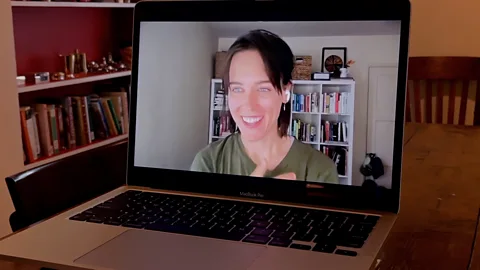Young people can't afford a life. Whose fault is that?
 BBC
BBCIt's not easy being a young person today. I see it when I talk to my children and their friends. Many of them submit hundreds of job applications, only to be rejected by an algorithm. The cost of buying a home is insurmountable – and the cost of having a child seems even higher.
Recently, I've been thinking back to my time as a young adult. I graduated from university in 1988 and went straight into a well-paying job. By the next year, I saved enough money for a down payment on my first home. Before I turned 30, I already had my first child. When I look at the experiences of today's young people, I sometimes feel like I grew up on a different planet, rather than in a different generation.
So, whose fault is it that affording a life has gotten so much harder? I find myself asking that question a lot. I called Kyla Scanlon for some answers.
Scanlon is a 27-year-old American economics writer, founder of personal financial education company Bread and content creator who has amassed a huge social media presence. In 2022, she coined the term "vibecession" to describe the state of the American economy during President Joe Biden's time in office. Many of her followers are young people looking for answers about their finances. Her latest book is In this Economy? How Money & Markets Really Work.
Our conversation dove right into the question of how life got so unaffordable for young people in the US, especially – and whether there's a clear answer on where the blame should lie and what can be done to fix it.
If you are a young person, or have one in your life, you should definitely watch (or read) our conversation below.
Below is an excerpt from our conversation, which has been edited for length and clarity.
Katty Kay: Let's start with what seems like a sort of tension between people of how the economy is working for them. Full disclosure: I'm 60. You're not 60. I graduated from university in 1988. I went straight from university into a reasonably well-paid job in the British civil service. At 29, I had my first child, and that was not something where I thought, 'My God, I'm never going to be able to afford this.' When I look at my kids and their friends, it's almost a different planet.
Kyla Scanlon: I'm 27 and I graduated, basically, into the pandemic. What you're talking about feels very foreign to me, and it feels very foreign to the people that I know. For the older population, there was somewhat of an equation to follow. Homes were a lot cheaper. Education had a more predictable return. Things were not as expensive.
Of course, every generation has their own challenges, but the younger generation right now, the under-30s, is facing an uphill battle in of home ownership, in of saving, in of the labour market, in of inflation, in of a global pandemic disrupting a lot of young adulthood. So, I think it's been challenging.
KK: Do you look at what I had and think, 'What the hell? Did you guys just take everything">window._taboola = window._taboola || []; _taboola.push({ mode: 'alternating-thumbnails-a', container: 'taboola-below-article', placement: 'Below Article', target_type: 'mix' });
